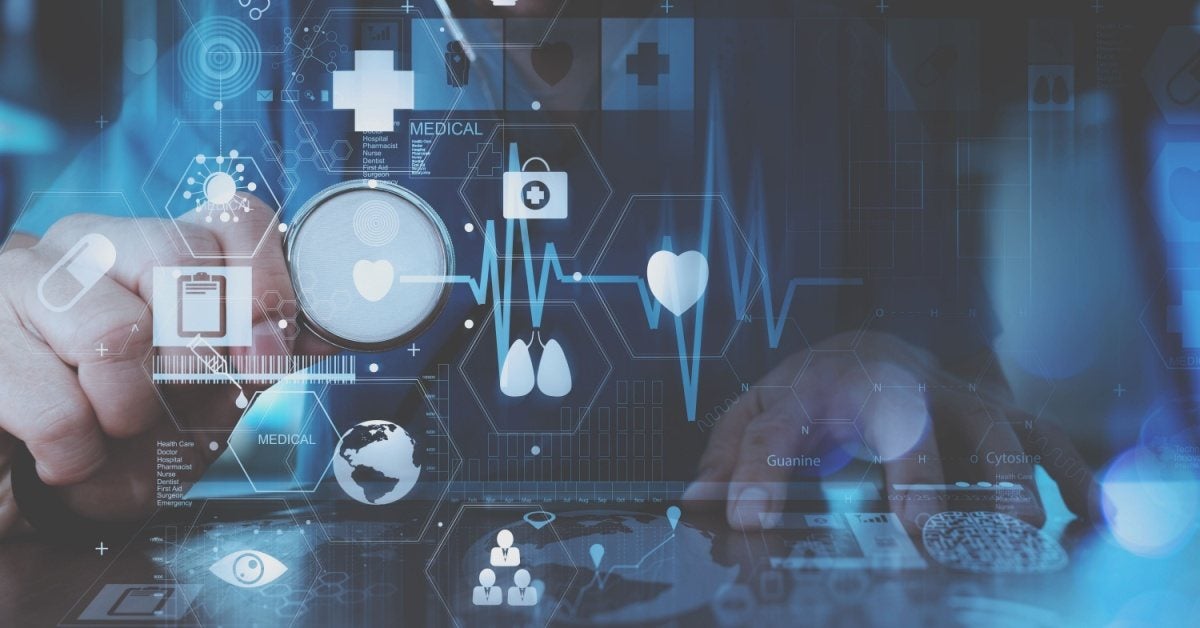In recent times, we've seen a surge in data breaches targeting healthcare organizations, with the MediSecure data breach incident being the latest on the list. But why exactly is health data so attractive to hackers?
Health data is incredibly valuable for several reasons. Firstly, it often contains a wealth of personal information, including identity numbers, addresses, and financial details, which can be used for identity theft and fraud. Secondly, medical records hold sensitive information about individuals' health conditions and treatments, which can be sold to the highest bidder. Moreover, health data typically has a longer shelf life compared to other types of data. Unlike credit card information, which can be quickly canceled or changed, medical records and personal identities are permanent, making them a lucrative target for cybercriminals.
The Medisecure breach highlights the urgent need for stronger security measures within the healthcare sector to protect against these increasingly sophisticated cyber threats. As healthcare systems continue to embrace digitalization, safeguarding patient data must be a top priority to prevent future breaches and the severe consequences they bring.
MediSecure Data Breach and Its Effects
MediSecure had suffered from a large-scale ransomware attack, leaving customers' data vulnerable. While the number of patients is undetermined, the cyber security chief has stated that current prescriptions are unaffected by this data breach. Australia's federal police are investigating the intrusion, which the National Cyber Security Coordinator described as a ‘large-scale ransomware data breach incident’. It is believed that the attack originated from one of the third-party vendors that MediSecure uses. This incident, occurring less than two years after the widely publicized Medibank hack, is indicative of a growing trend of cyberattacks on the healthcare industry.
According to the cyber security chief, the MediSecure data breach is an 'isolated' attack. The chief has also stated that health data is a prime target for cybercrime. This is due to the fact that healthcare is rapidly digitizing, with innovations like patient-accessible electronic health records, remote monitoring, and wearable devices. These advancements enhance the efficiency and effectiveness of healthcare, improve access to care, and ensure that information, such as prescriptions, is available when and where it is needed. However, this extensive scale of digital health data makes breaches increasingly common. While the exact number of patients and providers affected by the MediSecure breach is not known, the attack was widespread.
A ransomware attack is when a hacker gains access to a system, infects the system, and locks up files. A ransom is then demanded for the files, and this is usually in the form of cryptocurrency. Cybercrime yields high profits, making it attractive to criminals, and the vulnerability of health data makes it even more lucrative.
The effects of a health data breach can be devastating. Breaches can cause major disruptions in healthcare services. Access to critical patient information may be compromised, leading to delays in medical treatments and procedures. This can adversely affect patient care and outcomes. Additionally, patients may lose trust in healthcare providers and organizations that fail to protect their sensitive information. This loss of trust can lead to a decrease in patient engagement and reluctance to share necessary health information.
For healthcare companies affected by a ransomware attack, there may be additional operational costs. Addressing a data breach often requires significant resources. Organizations must invest in cybersecurity enhancements, conduct thorough investigations, and implement measures to prevent future incidents. These operational costs can strain budgets and resources. However, in the long run, stricter cybersecurity protocols will strengthen the reputation of healthcare companies and ensure that data is kept safe.

About MediSecure
MediSecure is an Australian healthcare technology company specializing in electronic prescriptions. Founded with the mission to enhance the efficiency, accuracy, and security of healthcare delivery, MediSecure provides innovative solutions that streamline the prescription process for healthcare providers and patients alike. The service rose in popularity during the COVID-19 pandemic in 2020, and since May 2020, over 189 million electronic prescriptions have been issued. MediSecure continues to provide e-prescription services to private healthcare providers.
What Are Electronic Prescriptions?
Electronic prescriptions, or e-prescriptions, are digital versions of traditional paper prescriptions that allow healthcare providers to write and send prescriptions directly to a pharmacy electronically using specialized software. This system replaces the need for handwritten prescriptions and offers several significant advantages.
One of the primary benefits is improved accuracy; e-scripts eliminate the risk of errors associated with illegible handwriting or manual data entry, ensuring that pharmacists receive clear and precise medication orders. Additionally, the process of creating and transmitting prescriptions electronically is faster and more streamlined, which speeds up the dispensing of medications and reduces wait times for patients.
E-scripts also enhance accessibility and integration within the healthcare system. Authorized healthcare providers and pharmacists can easily access prescription information, ensuring that it is readily available when needed, especially in emergencies or for patients seeing multiple providers.
The convenience and security offered by e-scripts are also noteworthy. Patients no longer need to carry paper prescriptions to the pharmacy, as e-prescriptions can be sent directly from the doctor's office to the pharmacy, simplifying the process for patients. Additionally, e-scripts are transmitted through secure systems, reducing the risk of prescription fraud and forgery. Digital records also facilitate the tracking and monitoring of prescription patterns for controlled substances, enhancing overall medication management.
Why Hackers Target Health Technology Companies
Hospitals often have a wealth of data and this makes it particularly appealing to cybercriminals. The vast amount of data, including information such as identity numbers, addresses, financial details, as well as information regarding illnesses and treatments, are all stored by healthcare providers. Once cybercriminals have access to this data, they are able to sell it off to the highest bidder.
As health technology evolves, devices become smarter and more innovative, and while these devices such as x-ray machines, defibrillators, and even insulin pumps do not store patient data, these devices are not often built with security in mind. This means that hackers are able to gain access through the devices into more sensitive devices like phones and laptops, before infecting and locking files, holding them for ransom. Additionally, hackers could gain access to lower-security devices and cause them to stop working in life-threatening situations, thereby harming patients and healthcare providers in a far more sinister way.
Another opportunity that hackers exploit is the collaborative efforts of healthcare providers. Different departments often need to work together when finding solutions and treatments for a patient. This means that people have to access data remotely, on various devices, across different networks. Not all devices and networks are secure and this may lead to unauthorized access to sensitive patient data.
Building Cybersecurity Resilience
Although health technology companies always face the risk of being under a ransomware attack, there are some strategies that they can implement to ensure that their systems are cyber secure. Here are some ways to build cybersecurity resilience for your health technology company:
- Invest in state-of-the-art security solutions, including firewalls, intrusion detection systems, and encryption technologies. Regularly update and patch software to protect against ransomware.
- Perform routine security audits and vulnerability assessments to identify and address potential weaknesses in the system. Penetration testing, conducted by ethical hackers, can help uncover hidden vulnerabilities before malicious actors can exploit them.
- Create and maintain a detailed incident response plan that outlines the steps to be taken in the event of a cybersecurity breach. This incident response plan should include roles and responsibilities, communication protocols, and procedures for containing and mitigating the impact of a breach.
- Provide ongoing cybersecurity training on cyber hygiene and education for all employees, emphasizing the importance of following best practices and recognizing phishing attempts and other common threats.
- Implement a zero-trust security model that assumes no user or device, inside or outside the network, can be trusted by default. This approach involves continuous verification of user identities and device integrity, strict access controls, and segmentation of network resources to limit the potential spread of breaches.
- Encrypt sensitive data both at rest and in transit to protect it from unauthorized access. Implement robust access controls, including multi-factor authentication, to ensure that only authorized personnel can access critical systems and data.
- Ensure compliance with relevant regulatory standards and frameworks, such as the Health Insurance Portability and Accountability Act (HIPAA) in the United States or the General Data Protection Regulation (GDPR) in Europe. Adhering to these standards helps ensure that appropriate security measures are in place to protect sensitive health information.
- Collaborate with cybersecurity experts like Sangfor Technologies, and consultants. These experts can provide valuable insights, conduct advanced security assessments, and assist in developing and implementing robust security strategies.
By integrating these strategies, healthcare technology companies can build and maintain strong cybersecurity resilience, protecting sensitive health data and ensuring the continuity of essential healthcare services in the face of evolving cyber threats. Contact Sangfor Technologies to find out how we can best protect your data today, and for the future.
Contact Us for Business Inquiry
References:
https://www.theregister.com/2024/05/17/medisecure_ransomware_attack/





